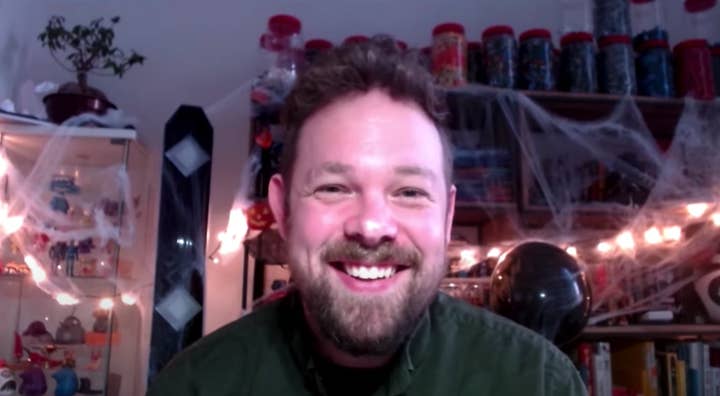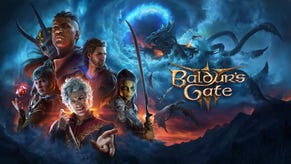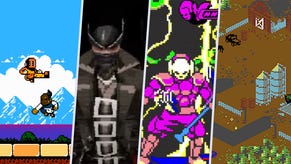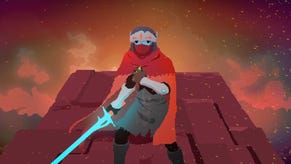Mike Bithell: What I wish I knew when I started in games
During GamesIndustry.biz Live: Academy, Mike Bithell explored six lessons he's learned during his career that can help aspiring developers get a successful start in games
When entering the games industry, it's easy to be overwhelmed by the infinite possibilities you have as a game developer. Knowing how to code, animate or draw is only the first part of the equation. Where do you even start from there?
Do you go it alone? Do you try to find a position at a company? Do you offer your services as a freelancer? Do you create your own studio? And among the myriad of ideas that have been twisting and twirling in your head, which one is the project that you should work towards releasing?
During a GamesIndustry.biz Live: Academy talk, Bithell Games founder Mike Bithell discussed what he wished he knew when he started in games.
.jpg?width=720&quality=70&format=jpg&auto=webp)
"I get asked to do this kind of talk quite a bit," he said. "The problem I always run into is that most advice you're going to get at a conference or from someone in my position is going to be out of date, because it's happened in the past. And this industry is changing so much all the time or it's tied very specifically to what that person's situation was.
"It's all very well me saying to you: 'Well, the key to Solitaire Conspiracy was getting so many wishlists' or 'All you simply have to do is be on a podcast a lot or have Twitter followers'. [But] that's not super helpful and it's always something that I've always struggled with in those talks -- to give meaningful [advice]."
Instead of offering advice on rigid strategies, Bithell decided to focus his talk on lessons and ways of thinking that are helpful when you get started in the industry.
"[I want to talk about] the way in which I think, and the way in which our company and the people around me think and talk about problems, how our company is set up, what games we make, how we make them," he said. "A bunch of lessons learned in a more generalised way seems more useful rather than just saying: do this specific business technique that worked in 2013."
1. Find an underserved audience
Bithell's first piece of advice to aspiring game makers is to find an underserved audience. While you probably have a dream game that you want to work on, carefully considering the market before getting started may be a better approach. Having an early succes can give you more freedom to work on a passion project.
"Finding a space where no one else is, or where a lot of people are in terms of players, but maybe there aren't many games or they aren't the kind of games they want -- and taking that opportunity quickly," Bithell explained. "The problem is, historically, every example of this has been a bubble. It's been a moment where there's been this great opportunity, and then a few people took advantage of that opportunity, have done very well and then everyone else jumps in and suddenly it's overpopulated."
"Finding those opportunities that no one else has spotted yet and jumping into those is a really cool thing to do"
A good example of this type of situation would be the launch on the Nintendo Switch, he continued. The console didn't initially have a lot of support in terms of software, which represented a great opportunity for the few developers who actually invested in the platform.
"Those few indie games that were there from the start actually turned that into an opportunity and [sold] lots of copies because there weren't many games there," Bithell said. "What happened was those games got written about, talked about. Indies, the rest of us -- myself included -- flocked the platform with our games, but of course by that point... There was still lots of opportunity there, but that massive open space was gone. And now things have steadied out a bit on the Switch store and it's a bit more the numbers you'd expect.
"That's a really good historical opportunity and a good illustration of what I'm talking about in terms of thinking about the thought process rather than the outcome. So not going: bring your game out on Switch, but bring your game out wherever there's space."
Bithell added that his studio also benefited directly from this in the past with Thomas Was Alone, because it came out at a point in time where most AAA companies had moved away from PC.
"Thomas Was Alone was on the Steam front page for a couple of weeks because there was nothing else coming out. That worked really well for us and found us an audience. So finding those moments and those opportunities that no one else has spotted yet and jumping into those is a really cool thing to do."
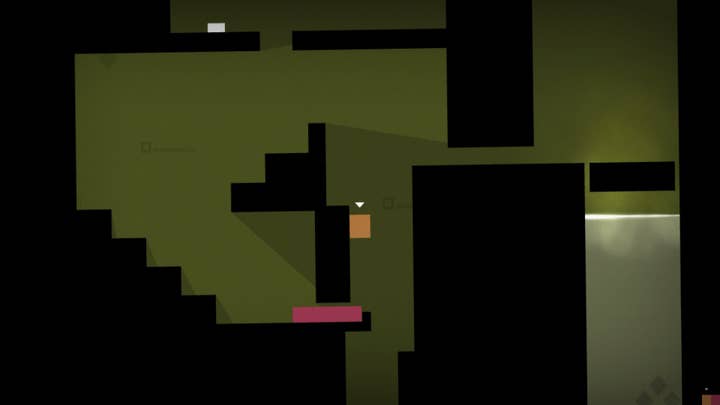
2. Don't crunch
The generation of developers arriving on the job market in this day and age seem to already be aware of the harm crunch can do, Bithell pointed out, but he highlighted his no crunch policy as a cornerstone for a successful start in the industry.
"Don't crunch," he simply said. "The numbers in terms of productivity during crunch are appalling. It's a really inefficient way to make anything. All the data we've got from every study very clearly points out that crunch works usually for one to two weeks tops, and then it crashes, and then everything slows down. Taking long breaks, taking weekends, demonstrably and provably gets you to make more work.
"Definitely if you're starting a team or starting a company, make it very much a goal from the start to not do crunch. And stick to it, and figure out ways around that. Figure out flexibility in your schedules in other ways, in terms of flexibility of scope, arranging for buffer time, arranging space to breathe for your team."
"Manage your schedules and don't accept excuses when that goes wrong. It's always a failure of management when crunch happens"
In addition to simply being the right thing to do, Bithell pointed out that it also doesn't make business sense.
"Not only have you burned people out, got them sick, kept them away from their families, but you're also not making better or more product, so therefore you're not making more money either. Even if you are an awful human being who wants to make people who work for you suffer, even then it's a bad idea."
Bithell said that while he's very strict about his employees not crunching, he personally has struggled with working too many hours in the past, which is a common caveat when your work is also your passion.
"I've ended up in a hospital with heart palpitations while making Volume, because I was working too many hours," he said. "And it was a real wake-up call for me in terms of managing my time and making sure that I was living up to the principles I talk about. Manage your schedules and don't accept excuses in terms of when that goes wrong. It's always a failure of management when crunch happens."
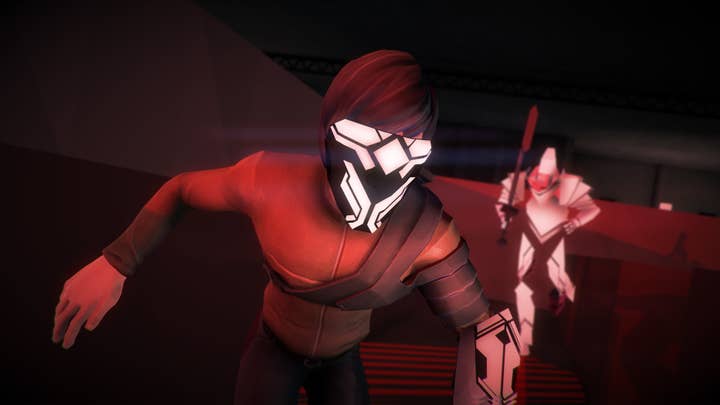
3. Play to your strengths and be unique
If there is something you are particularly good at, you should focus your efforts on that one thing. That doesn't mean you shouldn't push yourself out of your comfort zone, but it's perfectly fine to also stay in known territory to make sure you can actually deliver on your idea.
"The big one that we definitely have always benefited from is playing to your strengths, so specifically trying to make games that play to what you and your team can do," Bithell said. "What can you do well? And literally, there's no harm in sitting down and writing down a bullet point list of the things that you can do really well. And your game should probably be mostly about those things. There's no shame in making games that you can make.
"What's excellent and cool that you can get done? There's no shame in making games that you can make"
"What can you produce? What's excellent and cool that you can get done? Things that you can't do, maybe avoid those. Our general rule is we do 80% stuff we know we can do well, and then we'll squeeze in a 20% something new. Specifically because we want to obviously always be pushing ourselves forward, but also it's really crucial to us that we lean into what we can do."
He provided a few examples of things Bithell Games is particularly good at, such as story and presentation. But every now and then the team would push into areas where they're not as comfortable, which was the case for The Solitaire Conspiracy.
"[With] Solitaire, we did lean heavily on our comfort [zones] with doing sci-fi stories and cool art direction, but I never coded a card game before, so that was the area where I was pushing my skills and exploring. Likewise with John Wick, we knew we could do the movie side of that well, we knew we could do the style of it, we knew we could make the interaction really interesting, but we wanted to make something deeper, something more strategic, which again was something we'd not done before, so we pushed in that area."
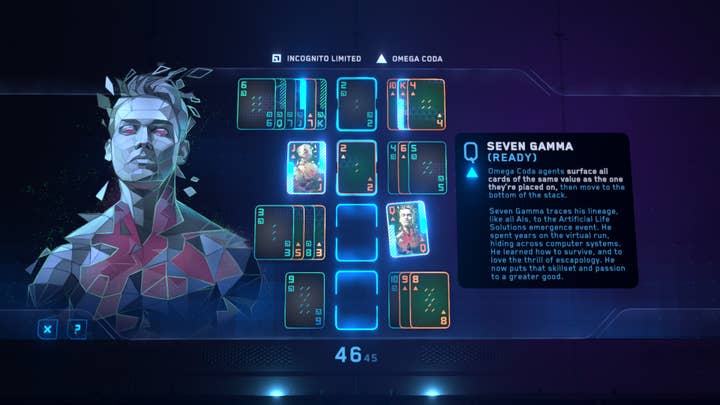
Another aspect of playing to your strengths is to make things that are unique to you, Bithell continued. While it explores the same core idea, this is more about exploring interests that are unique to you, focusing on things that you would not necessarily think were obvious ideas for games.
Bithell said he's a theatre nerd who loves musicals and is also really into theme parks for example -- both passions that he hopes to be able to use in a game one day.
"What are the things that people on [your] team are interested in? Often we think of these things as big moments where you're walking through the mountains and an idea appears in your head, and it's the greatest idea ever found. Most of the time that's not where the stuff that's particularly exciting comes from.
"Usually it's someone who has a weird interest. They're into something that most people who make or play games aren't into, or something where they combined two things that never been combined before and found something cool as a result of that. That's valid. That's innovation. That's originality."
4. Prioritise kindness
Another important lesson Bithell has learned throughout his career is to prioritise kindness, and show emotional intelligence.
"[Prioritise] not leaning into the whole 'mean genius' trope," he said. "It's tiring and not worth it. I'm incredibly happy and proud to work with a bunch of just really good people who are there to build other people up and find creative solutions to problems together. [I'm] not a big fan of the whole Rick and Morty's Rick Sanchez personality type. There's no amount of intelligence that allows you to be nasty to people and I've got very little patience for it."
"There's no amount of intelligence that allows you to be nasty to people and I've got very little patience for it"
Bithell has often encountered this during his career, and he admitted he might have been guilty of it in his early days in the industry. But as he "grew up," he realised it was absolutely the wrong approach.
"As a company we try and encourage everyone to be supportive and good-hearted. And I know it sounds a bit gooey, but it's important. It's something that definitely I wish I had prioritised earlier. It's very easy to fall into the assumption that we all have to just be really smart, [but] I think emotional intelligence and 'soft skills' are, if not more important, then definitely as important."
Bithell pointed out that criticism is a very different thing, though, and as a game developer you have to be very open to it.
"Be comfortable criticising each other's work. But I've encountered people who go beyond criticism and into perhaps smug cruelty, which is something that I think as an industry we just need to get over.
"It goes a long way in terms of boring business reasons like retention, keeping people around, people not wanting to leave the first chance they get. We have a nice studio culture as a result of that and people tend to stick around, so it makes business sense as well to not allow people to be awful to each other."

5. Challenge the status quo and seek your peers
Bithell described his next piece of advice as a "self-destruct sequence," as he recommended young people to not listen to him or to anyone who would be asked to talk at conferences.
"Don't listen necessarily to those people," he said. "I mean, there's obviously good wisdom always to be found from your elders, or your heroes, or people you follow on social media. But also I think there's a lot of nonsense. There's a lot of stuff that worked five, ten, 15, 20 years ago, but that doesn't work so well now.
"And I think ultimately it's the job of every creative generation to come along and be punks, and be a bit different and challenge those status quos -- and ultimately change things. We did. The generation before us did. And the next generation should. I think that's important and it's useful."
"It's the job of every creative generation to come along and be punks, and challenge those status quos"
That doesn't mean you don't have to listen to anyone, he continued, but it's your peers you should be seeking rather than your elders.
"This is something that I often say to students who I'm working with or talking to: usually their peers are gonna be able to give them more insights. Their peers are gonna be more in touch with the culture of the day. Their peers are building up their own careers -- you can grow together."
He highlighted that the games industry has generational groups, people who came together because they found success at the same time.
"So you get these strange, time-locked peer groups," he added. "That's a good thing. I think especially when you're starting out, look around you and find the talented people and gravitate towards them, and learn from them and work with them and build each other up. You see new spaces opening up because of that."
6. Learn to be extroverted
For many people, presenting work to the world on social media or on the show floor of a massive event will not come naturally. Maybe they're a bit more introverted, maybe impostor syndrome has struck them, maybe they come from a culture where showing off is frowned upon. But Bithell said that you need to fight that feeling and just go for it.
"I'm always really worried about showing off, which I know is hard to believe if you follow me on Twitter or you've seen me talk a lot," he said. "I don't really like to talk about our stuff, but I do because I have to. And I do. A lot. Too much possibly. And I think that's a good thing.
"I think this is weirdly something that comes up with British devs a lot, and maybe less so with Americans and other countries. But definitely there's a shyness about showing off, about declaring that you've made a thing, and encouraging the audience to support it, or wishlist it, or buy it, or tell their friends. I think there can be a nervousness about showing off. and I'm here to tell you it's worth it. It's okay to feel that way and it's normal to feel that way, but at the same time having the nerve to show off your stuff and share it ultimately is the point."
Promoting your work is as important as doing it in the first place. There are ways of doing it correctly though, so you need to find the right balance. And keep in mind that, when your career is a bit more established, you'll have support to do these things.
"It's okay to ask for help with it, if you're ever a point where a publisher or a platform holder is wanting you to do that stuff and go on stage," Bithell said. "It's okay to ask them to help you out with that. They are professionals who can turn any of us into a competent public speaker and they're usually quite patient."
You can rewatch all the videos from GamesIndustry.biz Live: Academy on this page.
More GamesIndustry.biz Academy guides to Working in Games
Our guides to working in games cover everything from how to get a job in the industry to how to avoid burnout:
